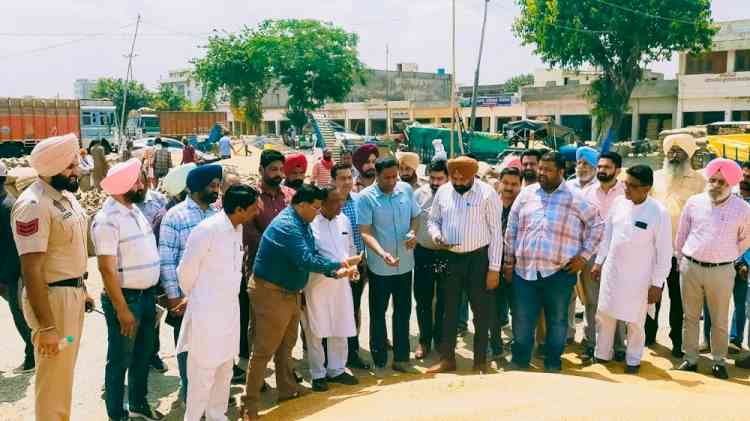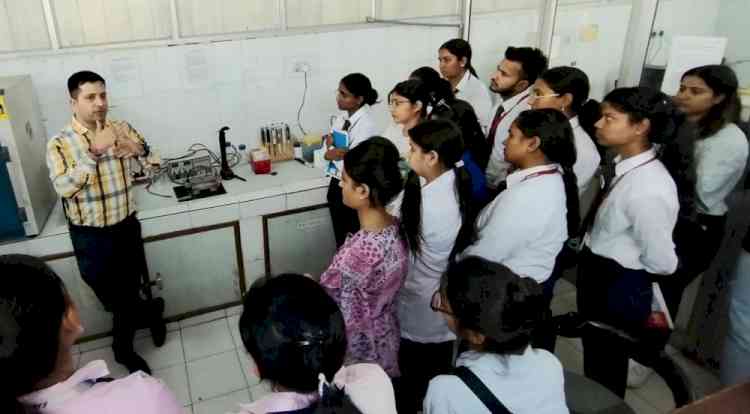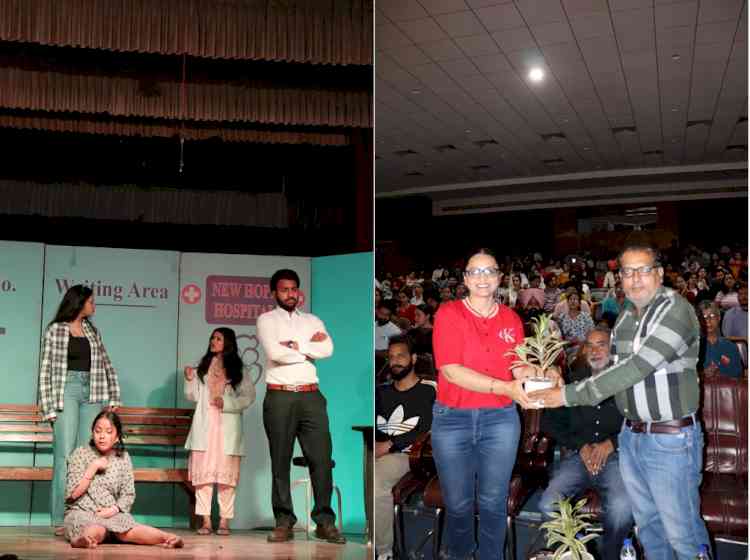Risks of childbearing for mother and her baby can be greatly reduced: Dr. Vaneet
Author(s): City Air NewsLudhiana, April 10, 2017: Fortis Hospital Ludhiana organised a special event on the eve of World Safe Motherhood day under the leadership of Mr.Vivan Singh Gill, Director Fortis Hospital Ludhiana. The Programme...


Ludhiana, April 10, 2017: Fortis Hospital Ludhiana organised a special event on the eve of World Safe Motherhood day under the leadership of Mr.Vivan Singh Gill, Director Fortis Hospital Ludhiana.
The Programme was started with lamp lighting ceremony and the Speakers of the event were Dr.Vaneet Kaur, Senior Consultant, OBG Department & Dr.Poonam Rastogi, Senior Consultant OBG Department.
Giving information Dr. Vaneet Said, Every pregnant woman hopes for a healthy baby and an uncomplicated pregnancy. However, every day, about 1,500 women and adolescent girls die from problems related to pregnancy and childbirth. Every year, some 10 million women and adolescent girls experience complications during pregnancy, many of which leave them and/or their children with infections and severe disabilities.
Each year, about 3 million babies are stillborn, and 3.7 million babies die very soon after birth or within the first month. The poor health of the mother, including diseases that were not adequately treated before or during pregnancy, is often a factor contributing to newborn deaths or to babies born too early and/or with low birth weight, which can cause future complications.
Dr. Poonam Rastogi said, The risks of childbearing for the mother and her baby can be greatly reduced if: 1) a woman is healthy and well nourished before becoming pregnant; 2) she has regular maternity care by a trained health worker at least four times during every pregnancy; 3) the birth is assisted by a skilled Person, such as a doctor, nurse or midwife; 4) she and her baby have access to specialized care if there are complications; and 5) she and her baby are checked regularly during the 24 hours after childbirth, in the first week, and again six weeks after giving birth.
Pregnant women and their partners who are HIV-positive or think they may be infected should consult a trained health worker for counselling on reducing the risk of infecting the baby during pregnancy, childbirth and breastfeeding, and caring for themselves and their baby.
The Government has a responsibility to ensure that every woman has access to quality maternity care, including prenatal and post-natal services; a skilled person to assist at childbirth; special care and referral services in the event serious problems arise; and maternity protection in the workplace.
Many women, including adolescents, have difficulty accessing quality health care due to poverty, distance, lack of information, inadequate services or cultural practices. The Government and local authorities, with support from non-governmental and community-based organizations, have a responsibility to address these issues to ensure that women receive the quality health care they need.

 cityairnews
cityairnews 
















